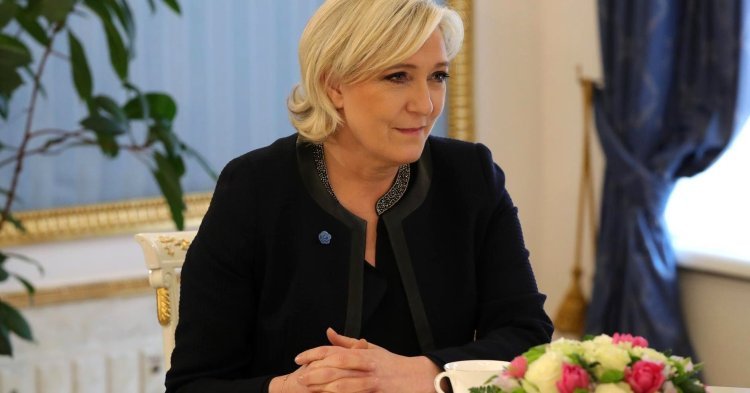When on June 23, 2016, British people chose to leave the EU, far-right politicians like Italy’s Matteo Salvini, France’s Marine Le Pen or the Netherlands’ Geert Wilders celebrated on social media. But by 2019, only Geert Wilders’ PVV and Alternative for Germany (AfD) remained positive about Nexit and Dexit.
Gone are the mentions of Article 50, referenda and greener pastures outside Brussels’ suffocating red tape. Though the parties have not become Eurofederalist, their new buzzword is now “reform” rather than “exit”.
On January 2019, Jimmie Åkesson, the leader of the Sweden Democrats, wrote an op-ed announcing the party’s position change away from exiting the EU. Instead, Åkesson said, the party would now fight for treaty reform. This treaty would undo decades of post-Maastricht integration, but would keep Sweden in the EU.
The French far-right has also abandoned all mentions of leaving the EU, instead advocating for such a thorough reform of the EU, that it would even change its name. As a side note, there would even be more integration on some areas, like on immigration.
But some parties still held on to hard Euroscepticism, like the AfD. Going into the 2019 election, the party advocated thorough institutional reform, but if their demands were not met by 2024, the party would demand an exit from the EU.
How parties decide their policies
But why the change of heart about the EU? Contrary to common perception, the leaders of right-wing populist parties can be pragmatic and flexible if necessary. In this respect, they behave just like any other party leader. If an idea is perceived to be a vote-loser, they will drop it, mellow it and pretend it was never proposed.
Most right-wing populist parties have top-down, authoritarian leaderships where the party leaders control all the levers of power within the party. The lack of internal democracy can be an asset: Without being conditioned by the party base, party leaders can be as pragmatic and as flexible as necessary to pursue whatever political objectives they want.
But some parties, like the AfD, have fairly democratic internal structures. They are obliged to this by Germany’s federal law on parties. This means that the party’s base holds great power in deciding what the party stands for.
What political science tells us is that, almost always, the party’s rank-and-file is more ideologically extreme than either its average voter or the party’s leadership. Members are concerned with maintaining ideological purity and coherence, leaders with obtaining power to enact their policies.
As a result, the right-wing populist parties that had strong, in some instances almost dictatorial leaders, the parties tilted towards moderation on the issue of EU exit. The AfD, the sole case of a more or less internally democratic party opted instead for extremism.
Brexit: An opportunity?
Continental Europe’s far-right populists have always had a complicated relationship with the EU. Unlike the British Eurosceptics, most of them have never been opposed to European integration per se, but rather to the shape it has taken. Neoliberal, distant and cosmopolitan, Brussels became a perfect strawman in their ‘fight’ against political elites. But this wasn’t always the case. In the 1980s, the Front National, like the Italian neo-fascists, was a fervent defender of European integration – as a way to defeat the true enemy, the Soviets.
With the end of the Cold War and the signature of the Maastricht Treaty in 1992, all these parties executed a 180-degree change – from pro-Europeans to Eurosceptics fighting for the primacy of the nation-state. Now against the ‘Eurocrats’ and their puppets in the national political mainstream. This has been the line ever since.
In this narrative, Brexit was, at first, a great opportunity. Beginning with Marine Le Pen’s desire to move away from traditional far-right discourse to a more ‘transversal’ populism, she championed using Article 50 as the cure to France’s problems. The economic crisis was the perfect background. Brussels-imposed austerity and the negative perception of how the EU handled the Eurocrisis and the migration crisis all fuelled anti-European sentiment across the continent. And so, like Marine Le Pen, other right-wing populists moved to also demand their independence from Brussels. It was an opportunity.
First, they advocated that their own government put EU membership to a referendum like David Cameron had, and when the results came in, all the leaders were quick to embrace the results and proclaim that Britain was leading the way for other countries to follow.
In the French elections of May 2017 too, the European issue was a key division between the two top contenders – Marine Le Pen and Emmanuel Macron. However, Macron won the election easily, after a debate where Le Pen gave a poor performance particularly on Europe.
If that was not enough, after David Cameron left the stage following the Leave victory, the new British government led by Theresa May blundered by calling for early elections and then largely proving itself incapable of assembling a competent team. Its dithering and bumbling looked even worse against the surprising unity of the EU27 and Michel Barnier’s negotiating team.
And things have only got worse. The British Parliament has rejected the deal negotiated, but also ruled out staying in the EU and leaving without a deal. Ultimately, May resigned and was replaced by Boris Johnson, who so far has managed the feat of losing every single vote he has put forward.
The result has been that, as the spring 2019 Eurobarometer shows, continental Europeans’ trust in the EU and their desire to stay in the Union has gone up. Among other factors, the British incapacity to deliver Brexit and the negative coverage Brexit has received makes Europeans prefer to stay in the EU.
Preparing for May 2019
In January 2019, the AfD held a major party conference to decide on its electoral programme ahead of the European Parliament elections. At the conference, the party leadership wished to drop any mentions of Dexit in light of the negative perceptions of Brexit in Germany. The leadership were overruled by the party’s members. Ultimately, a type of compromise was reached: Dexit was not dropped as a goal but moved further down the timeline. Short-term, the party would focus on EU reform.
Elsewhere, the Italian Lega, the French National Rally, and the Sweden Democrats all moved away from arguing for an exit. If in 2014 and in 2017, Marine Le Pen argued for leaving the EU and the eurozone, of reintroducing the franc and ending Schengen, by 2019 she stood for something else.
In a fairly long policy proposal, the National Rally defended a ‘European Alliance of Nations’ to replace the EU without mentioning how to get there. Other parties did not go so far, with the Sweden Democrats instead demanding treaty changes and the Lega skipping talk about Brussels beyond populist criticism of ‘unelected bureaucrats’.
While the National Front once advocated for exiting the euro, today the newly minted National Rally supports a reform of the European Central Bank’s mandate so that it focuses on more than just monetary stability. This type of reform could easily be echoed by a centre-left or a green party.
The radical right’s new group in the European Parliament, Identity and Democracy, simply advocates for blocking any further integration.
What now?
Right-wing populist leaders seek power, and Europe falls outside their core ideological concerns like nativism. This means a considerable degree of flexibility. As long as Brexit makes the idea of leaving the European Union a non-starter that would damage the country’s economy, the populists are unlikely to defend it. Rather, institutional reform and the use of EU institutions to enact their anti-immigration agenda is a much more likely policy avenue.
That is, if the leaders can get their way. When parties are internally democratic, they will have to contend with their more purist rank-and-file, who will defend exit – come hell or high water, and whatever the polls may say.


Follow the comments: |
|
